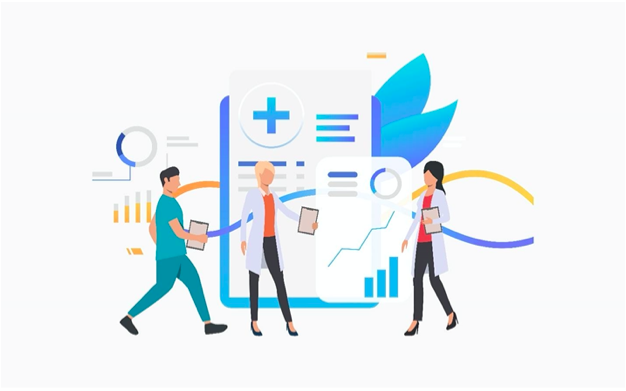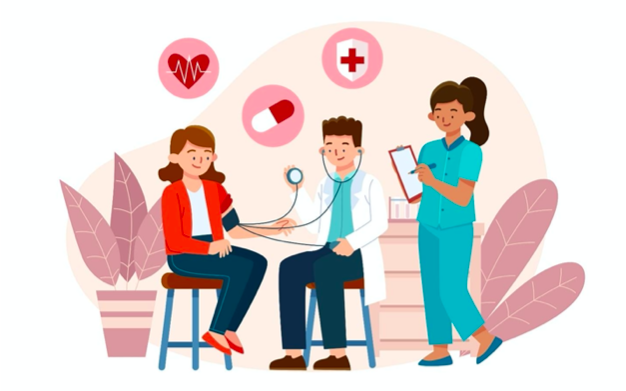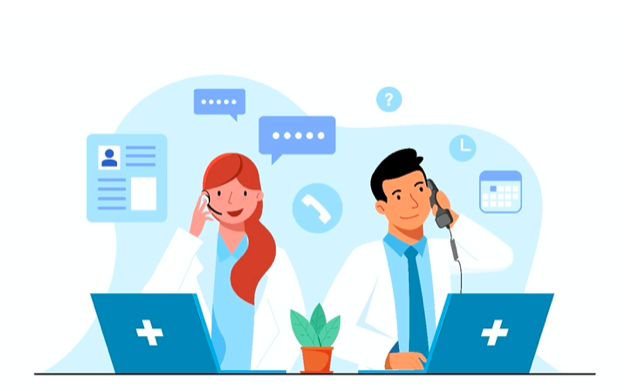Why Is Digital Identity Verification Important in Healthcare?
While it seems like a recent addition to our lives, digital identity verification has been around for a long time. Early forms of digital identity verification were used for online access to government and other service websites. The real power of digital identity verification is that it simplifies many processes and makes them more efficient.
 |
| Source FreePik |
Healthcare is one of the most sensitive and important sectors vulnerable to any security breach. The purpose of digital identity verification is to eliminate fraudulent activities and improve service delivery. It enhances the safety and security of the healthcare industry.
Digital Identity Verification in Healthcare
More and more doctors are using digital methods for storing patients' information. They keep checklists of every procedure they perform. Most healthcare companies have started using digital systems for various purposes. This includes patient records, prescription verification, and communication between patients and staff.
While this is a great way to reduce the risk of human error and the infection of confidential information, another chance comes with it. If a person using a digital identity has a malicious intent, it is easy for them to gain access to any private data.
It is why digital identity verification is crucial. It is a process to tie the digital identity with a physical identity so that the two can be verified together.
You can use it to ensure the security of sensitive data and information. It provides that the transaction is secure and verifiable. Data is not tampered with during the process. It also helps to combat the growing threat of cybercrime and hacking.
Here are a few ways to effectively and securely implement Digital Identity Verification in healthcare:
1. Patient Data Management
Although the healthcare industry is already thriving, much room is left for improvement. One of how technology can make a big difference is by ensuring that patient data is stored and handled properly. In healthcare, one of the most important concepts is patient data management.
Recent development in biometrics and digital identity verification system (IDV) has brought a noticeable change in medical data management. This system mainly aims at integrating all the medical records of a patient. It maintains the confidentiality, integrity, and availability of the same records at all times.
It has also increased the safety and accuracy level of data. This reduces the repetition of processes to enter the same data. You cannot overlook the importance of IDV in the healthcare sector. It has resulted in better and improved healthcare delivery.
2. Medical Care
Medical care can be expensive and time-consuming. So it's in everyone's best interest to ensure you get the right treatment. It's been reported that medical identity theft is common and can be very detrimental to your health and finances.
With a digital identity verification system for patients, you can quickly access their information and make an informed decision about their care. It's the best way to verify the person you're helping.
There are many identity validation solutions available these days. However, they can be somewhat pricey. However, these are systems worth considering because they can be your first line of defense regarding security.
One method is to scan their barcode, and you'll be able to access their information instantly. It's convenient for everyone involved and is a secure way to verify who you are. Protecting yourself from identity theft is up to you. So, make sure to use a digital verification system for patients.
Another method that you can employ is the identity validation solution. It verifies the patient's identity by comparing the digital identity database to the information provided by the user. In the identity validation solution, users enter their name and password credentials. The application then compares the data against the data stored in the user database.
 |
| Source FreePik |
3. E-Prescriptions
The physicians often prescribe regular medicines, usually delivered in the same way. However, there is a rise in the demand for internet medicine. Digital medicine is also known as E-Medicine.
It is nothing but the digital verification system that is used to manage patient conversion. Prescription details are verified by the data of the patient and the doctor. The doctor uploads the prescription along with a digital signature.
The prescription is sent to the server to verify the details. It is then sent to the pharmacist, who accepts it and dispenses the medicine. The system is being used in many developed countries around the world.
It creates a new standard for filling prescriptions. It also gives pharmacies, physicians, and patients a very efficient way of serving and managing medications. This creates a feeling of trust amongst all the participants.
 |
| Source FreePik |
4. Saving Time Using Chatbots
Many large healthcare organizations have sworn off the paper trail. As a result, they have shifted to digital verification systems to ensure everything is working as it should.
Unfortunately, the digital systems they have chosen don't work smoothly and take much time. For that reason, you can integrate chatbots into your digital verification systems to save time and resources.
A patient should be able to talk to a virtual receptionist the same way as a human receptionist. The chatbot can gather the patient's name and vitals from this interaction. It can automatically schedule their appointment and even offer payment options. In case of emergencies or the patient needs to see a specific doctor, the chatbot can automatically notify the doctor.
Final Thoughts
As the digital age comes to us, it brings a host of new problems for which solutions are needed. One of the areas that can benefit from digital solutions in healthcare. Digital identity verification is an important and highly sought-after solution. It helps to check fraudulent insurance claims.
When patients check into hospitals, they usually have to fill out a health insurance form that asks a series of questions. Their responses are compared to their insurance policy to determine the level of coverage they are entitled to. Digital identity verification can help in this process.
You can also deploy chatbots for verification purposes. Chatbots are accurate and efficient but not impersonal. They will increase the efficiency of the medical field by significantly reducing the amount of paperwork that needs to be completed.
It has led to a big shift in the way people perceive healthcare. This makes it even more important for healthcare professionals to learn about digital identity verification. So they can take advantage of this trend and offer their patients the best services possible.
If you'd like to know more about how identity verification can help your healthcare business, it's best to find an identity solution company, so they can provide a more professional insight.
